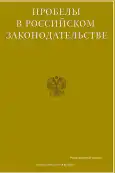Expertise as a Form of Evidence in the Tax Process
- Authors: Orlova N.A.1,2
-
Affiliations:
- Interdistrict Inspectorate of the Federal Tax Service of the Russian Federation No. 17 for the Moscow Region
- Financial University under the Government of the Russian Federation (Financial university)
- Issue: Vol 15, No 5 (2022)
- Pages: 260-266
- Section: Articles
- URL: https://journals.eco-vector.com/2072-3164/article/view/531723
- ID: 531723
Cite item
Abstract
Purpose of the study. The article deals with the problems of inefficient use of expertise as a way of collecting valid and reliable evidence, infringement of the rights and interests of taxpayers allowed during its appointment and conduct, which leads to the contestation of the results of the control measure and the recognition of the evidence obtained as inadmissible. Expertise is a mean of proof that allows you to obtain information from a professional who is independent in the outcome of the case and has knowledge in the field of science, technology, art and craft. The conclusion obtained as a result of the study can be a key evidence that has priority over many others, due to the use of scientific and practical data that increase the objectivity and categoricalness of the conclusions. Despite the high probative capacity, when conducting tax audits, expertise as a means of proof is not widely used, which in many cases does not allow obtaining reliable information about the circumstances of the offense. Conclusions. As a result of the study, objective reasons were identified for recognizing expert opinions as inadequate evidence that violates the rights and interests of taxpayers. The proposed mechanism for preliminary agreement on the conditions for engaging an expert, including a candidate, a list of issues that need to be resolved during the study, materials to be submitted for examination, allows reaching agreement with taxpayers on all significant issues before drawing up a resolution and initiating an event, which not only increases the legitimacy of the results obtained, contributes to the observance of the rights and legitimate interests of taxpayers and enhances the competitiveness of the tax process. The author has developed specific additions to be made to the Tax Code of the Russian Federation to implement the mechanism for preliminary approval and consideration of taxpayers' petitions on the appointment of an examination.
Keywords
Full Text
About the authors
Natalia Anatolievna Orlova
Interdistrict Inspectorate of the Federal Tax Service of the Russian Federation No. 17 for the Moscow Region; Financial University under the Government of the Russian Federation (Financial university)
Email: natali__orlova@mail.ru
Advisor to the State Civil Service of the Russian Federation, Grade 2, Deputy Head; Postgraduate Student of the Department of International and Public Law of the Faculty of Law
References
- Aliev Sh.I., Alieva Z.M., Tailova A.G. Tax control in Russia and foreign countries: forms and methods of its implementation: Monograph // Tambov. Consulting company Yukom. 2020. P.70.
- Vladimirov L.E. The doctrine of criminal evidence (1909) // Tula: Autograph. 2000, P. 135.
- Glazunova I.V. Specificity of evidence in the tax process // Law enforcement. 2019. V. 3, No. 4. pp. 63-74.
- Kozlov A.S. On the Conceptuality of the Theory of Evidence in Jurisprudence // Actual Problems of Legal Evidence. Irkutsk. 1984.
- Kozyrin A.N. Tax Process: Study Guide / Under. ed. A.N. Kozyrina // M.: TsPPI. 2007. 155 p.
- Kokorev L.D., Kuznetsov N.P. Criminal process: evidence and proof // Voronezh. 1995. pp. 109-113.
- Kolozina O.V. Evidence and proof in a tax dispute: issues of theory and practice // E-Scio. 2020. No. 7 (46). pp. 465-472.
- Kosarenko N. N. Development of the institute for the protection of the rights of the taxpayer in modern Russia // Scientific works of the Russian Academy of Advocacy and Notaries. 2019. No. 3 (54). pp. 60-64.
- Lukashevich V.Z. On the concept of evidence in the Soviet criminal process // Jurisprudence. 1963. No. 1. P. 118.
- Nakhov E.A. Evidence law in civil and arbitration proceedings: general part / E.A. Nakhov // St. Petersburg: VVM. 2012.
- Novitsky V.A., Novitskaya L.Yu. Problems of evidence law: theory, legislation, judicial practice: Monograph // St. Petersburg. 2017. P. 100.
- Porollo E.V. Tax control: principles and methods of implementation // M., 2018. 280 p.
- Reshetnikova I.V. Evidence in civil proceedings: a practical training manual for universities // Yurayt Publishing House. 2019. P. 10.
- Savostyanova S.A. Some problems of protecting the rights and legitimate interests of taxpayers in the implementation of tax control // Problems of Economics and Legal Practice. 2020 T. 16. No. 3. pp. 182-186.
- Eriashvili N.D., Korshunov N.M. Tax process // Moscow. UNITY-DANA. 2020. P. 607.
Supplementary files








